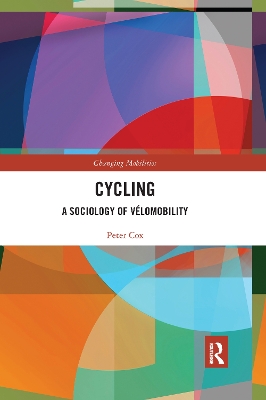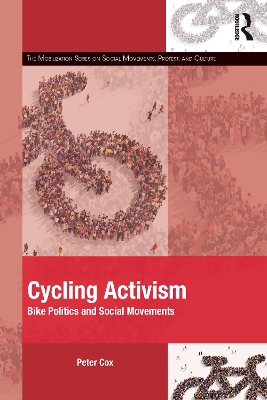The Mobilization Series on Social Movements, Protest, and Culture
2 total works
Cycling: A Sociology of Velomobility explores cycling as a sociological phenomenon. Drawing on extensive ethnographic fieldwork, it considers the interaction of materials, competencies and meanings that comprise a variety of cycling practices. What might appear at first to be self-evident actions are shown to be constructed through the interplay of numerous social and political forces. Using a theoretical framework from mobilities studies, its central themes respond to the question of what it is about cycling that provokes so much interest and passion, both positive and negative.
Individual chapters consider how cycling has appeared as theme and illustration in social theory, as well as the legacies of these theorizations. The book expands on the image of cycling practices as the product of an assemblage of technology, rider and environment. Riding spaces as material technologies are found to be as important as the machinery of the cycle, and a distinction is made between routes and rides to help interpret aspects of journey-making. Ideas of both affordance and script are used to explore how elements interact in performance to create sensory and experiential scapes. Consideration is also given to the changing identities of cycling practices in historical and geographical perspective.
The book adds to existing research by extending the theorization of cycling mobilities. It engages with both current and past debates on the place of cycling in mobility systems and the problems of researching, analyzing and communicating ephemeral mobile experiences.
The first full-length study of cycling activism through the lens of social movement theory, this book demonstrates that, despite tremendous differences, bike activism can be understood as a continuous and connected activity spanning a century and a half and across continents. With examples from street protest to institutional lobbying, it emphasises cycling’s current central importance to zero carbon transport futures, while showing that cycling activism is also not always about the bike or the cyclist, as successive generations of activists have used cycling to articulate different visions of freedom and autonomy. Moving from a consideration of social movement theory as a means to understand cycling activism, the author presents a series of case studies of collective action, organisations, networks and campaigns in order to illustrate and elaborate a theoretical model through which diverse campaigns and approaches to change can be understood. As such, Cycling Activism will appeal to those with interests in mobilisation for social change, mobility and transport studies, and social movement theory, as well as cycling studies.

